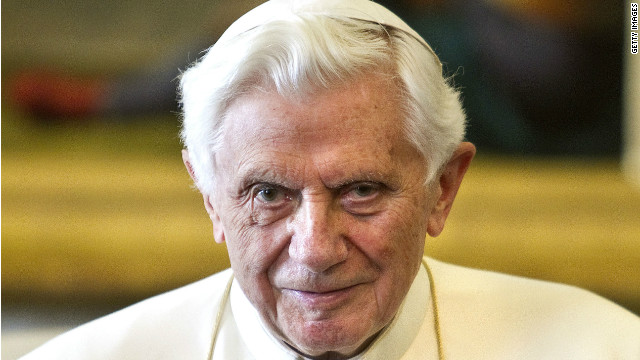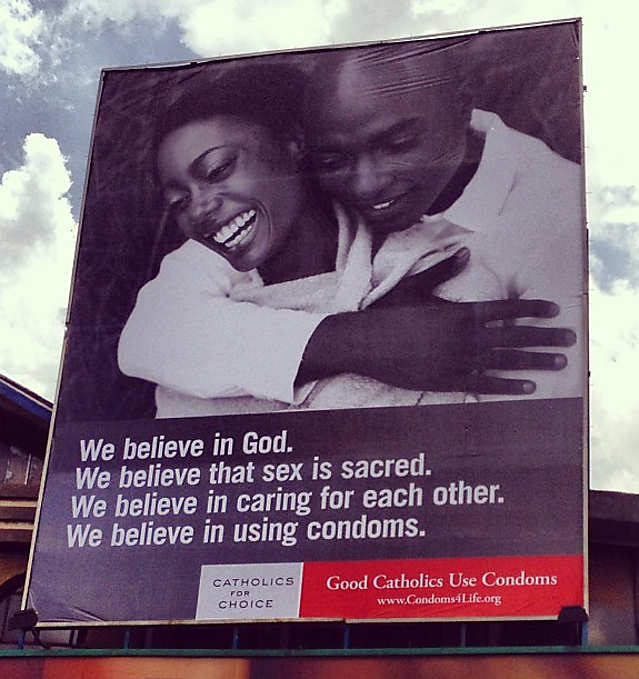
When I first heard the term “Benedict Option” I thought it referred to the popular movement to elect Benedict Cumberbatch as the leader of the Free World, and as such, was all about it.
Upon further research, it appears that the Benedict Option is the plan to “construct local forms of community as loci of Christian resistance” against a corrupt and immoral American empire, and as such, I’m iffy. (I don’t like to call it “wrong,” because its basic tenets are what the Catholic Church has always been saying (also, it’s Rod Dreher’s mind-baby, and he was recently very kind to me) so I will call it perturbing, as in, “full of pertinent and yet still somewhat turbulent claims.”)
The problem is not a practical one. Of course we’re supposed to form small communities in moral and spiritual resistance to the dominant and banal forms of culture that have reduced a relatively educated and interesting community into a mechanized, consumer society with utilitarian ethics, crappy music, and the protection of our Rights as Individuals to deprive Other Individuals of food, shelter, dignity, and life.
Anyone who thought that the mode-of-being declared as the ultimate ideal by Rabbi Christ found its fulfillment, or even a mutual friend, in the American Project, is deluding themselves.

Enlightenment-minded Deists formed a secular state in which all religions may live and move insofar as they check their absolutism at the door — and we think we’ve found the Promised Land? No, the current renewal of the “what the hell are we doing in this country” discussion, so popular among the Bishops of the early 20th century, is not a sign that America has lost its way. It is an admission of what Catholics have always feared: That the Church and the American Project were never really compatible to begin with, that there ain’t no party to vote for, that our current difficulties of “human dignity” are simply the playing-out of a fundamental discrepancy between a culture that lauds the sovereign individual as the basic unit of society and a Church proclaiming the fundamental relationality of the human person — a radical being-for and being-from that grounds the immense dignity of the imago Dei.
“In the world you will have trouble.” That was our Leader’s promise. Yet here we are, sipping lattes in the worldliest of worlds, shocked to find that the center is not holding, and that the Catholic faith appears to be a tumor in the body of liberal capitalism and a snake in the woodpile of secular democracy.
The Benedict Option fairly articulates the problem, and its solutions, when you really dig, hardly seem controversial (Dreher includes homeschooling as a possible instance of the idea). The problem is one of attitude. Approached with the problem of the Christian in the world, BenOppers turn in, declaring the America a new Pagan society and advocating for a new St. Benedict — a new spirit of monasticism and rejection of the world in and through the development of Christian communities.
But the doctrines of modernity, secularism, individualism, Americanism, liberalism — these aren’t New Paganisms. They’re Christianisms. “Lilies that fester smell far worse than weeds,” as C.S. Lewis put it, and he’s right: Our cultural stink doesn’t waft from newly sprouted ideologies, but from a rotten Christianity. We are “post-Christian” in the specific sense of being from Christianity — always referred to a Christian past, in thought as in history.
Our atheism is a Christian atheism (evangelical and fideistic), our murderous tendencies are Christian tendencies (compassionate and performed out of love), and our sexual issues are Christian sexual issues (deriving from the Christian elevation of sexuality to the level of freedom and love). Our Americana doctrines are the devolution and deconstruction of Christian doctrines: The Catholic understanding of religious freedom (a freedom which exists for the discovery of the truth about God) is not simply threatened by but devolves into secularism (a freedom which doesn’t exist for anything, but simply is, respected as an end in itself). The Catholic understanding of the equal dignity of humanity (established by our common status as icons of the Creator) isn’t a just a rival concept to liberal equality — it buckles into a conception of equality as the equal rights of the individual, granted by the State, as means of protection from the ill-intent of every other individual. In short, the Catholic hasn’t washed up on the beaches of a Pagan land — he lives in the Land of the Broken Church. He stands amidst the wreck of Christian doctrines, and is assaulted on every side, not by the anti-Church, but by the Church that has forgotten it is Church, a post-Church trying its best to prop up the values Christianity introduced to the world — universal love, charity, preference for the poor, freedom of conscience, the dignity of the person over the State, etc. — without any actual beliefs in the reasons for these values.
Obviously, we don’t have the space to trace the Christian origin of our idiocies in this post, but if it’s true, it’s a bit odd to apply the example of St. Benedict leaving the world to our current situation. Rather, the Christian living in the post-Christian world has a heightened responsibility to be in the world, to clean a very Christian mess, and to look on his post-Christian brothers and sisters, not as threats, but as lost Christians like himself.
This heightened demand is particularly potent to the Catholic laity, who must understand that their flirtation with any sort of “lay monasticism” can only go so far. Perhaps Dreher’s Orthodoxy pushes him otherwise, but the vocation of the Catholic laity has been well expressed by the Holy Church. The laity are to “seek the kingdom of God by engaging in temporal affairs and by ordering them according to the plan of God. They live in the world, that is, in each and in all of the secular professions and occupations. They live in the ordinary circumstances of family and social life, from which the very web of their existence is woven. They are called there by God that by exercising their proper function and led by the spirit of the Gospel they may work for the sanctification of the world from within as a leaven.” (Lumen Gentium 31)
And, if it is true that we live in the Broken Church, what strange leaven we are called to be, not simply fluffing up a Christless culture with the perks of the Gospel, but reminding a Christ-haunted culture of that homeland in which its obscure and precarious collection of pleasant beliefs finally finds a singular coherence, a raison d’etre and a ground of justification. I don’t think this can be obtained by an attitude that turns in, rather, the Catholic must take on that universal calling to become a being-for, to use the word of that other Benedict, the Sixteenth. As I’ve said before,  imitating Real Pope Benedict’s 60’s terminology:
imitating Real Pope Benedict’s 60’s terminology:
Salvation, then, like everything Christ does, is not a finish-line, but a new beginning, the ordination of a particular man into a being-for-others, the breaking-open and turning-out of the soul to the world. If God has called me to the Christian life, it is not because he is flexing his arbitrary power to save “whomsoever he will” (all glory to him for leaving me speechless, pissy and without explanation as to why he chooses me and not my neighbor.) He chooses me for my neighbor. To be saved is to be for. The answer to the question why I am Catholic and not another is already written into the meaning of the word Catholic — universal. The universal donor can give to all blood types, the universal antidote counteracts all poisons, and the universal human being, that is, the Catholic human being, must be “all things to all people” — a being-for every other being, a being in a relationship of love to everything not-Catholic.
If being-Catholic is simply being-saved, then The Benedict Option makes sense: Establish communities that ensure the easiest possible access to our salvation. If being-Catholic is being-saved-for, then it makes less sense: It ignores the other-orientated nature of Catholicity in its fundamental attitude of us-and-them rather than us-for-them, a particularly dangerous attitude when “they” are post-Christians. I don’t believe that any particular practice advocated by Benedict Option folk is necessarily contrary to this this radical being-for, but I worry that the dominant attitude inspiring these practices is.
Anyways, how different this dear land looks when we kill the expectation for America to be either a bastion of Christian orthodoxy or a decadent land of New Paganism, and instead understand it with the realism with which we understand ourselves in the sacrament of confession — as broken, fallen-away, and ignorant Christians, blindly believing half a dozen heresies and indulging as many bad habits, nevertheless looking for the truth. Why, it’s almost bearable.











